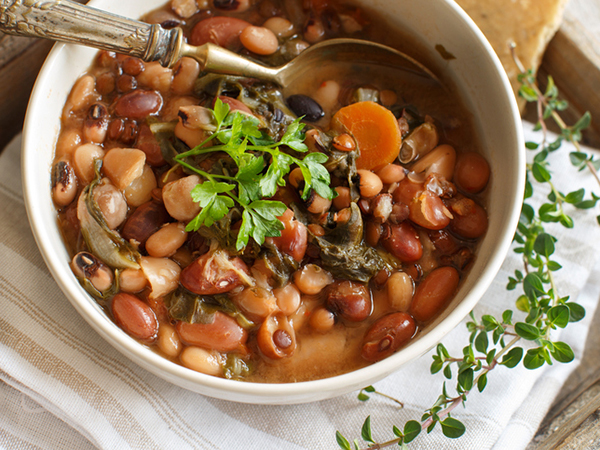A vegetarian diet can include foods that may be unfamiliar to you. Below is a glossary of terms that are a common part of a vegetarian diet.
Casein: A milk protein sometimes used in otherwise non-dairy products such as soymilk, soy cheese and non-dairy creamer. Vegans do not consume casein.
Legumes: The vegetable family that includes beans, lentils, peas and peanuts, all of which are great sources of vegetable protein.
Nutritional Yeast: A health supplement grown on molasses, sugar beets or wood pulp. May be used as a condiment or added to recipes to provide a cheese-like flavor.
Rennet: An enzyme from the stomach of slaughtered calves, used to coagulate cheese. Found in many, but not all dairy cheeses.
Seitan: A vegetarian replacement for meat, made of the protein gluten extracted from wheat.
Soybean: A legume, which is an excellent, inexpensive vegan source of protein and iron. Soybeans are used to make a number of vegetarian and vegan substitutions for meat, dairy and eggs.
Non-dairy cheese: A cheese-like product made from soybeans, other legumes or nuts. Non-dairy cheeses come in most of the same varieties as dairy cheeses, such as parmesan, mozzarella and cheddar. However, some lactose-free cheeses are not vegan as they contain the animal protein casein.
Plant milk: A milk-like product made from soybeans, nuts, seeds, grains or coconut. While soy milk is most similar to cow's milk in terms of protein content, most plant milk nutrient profiles are different than that of dairy milk. Some plant milks are fortified with nutrients such as calcium, vitamin D and vitamin B12.
Tempeh: A replacement for meat, made from fermented soybeans.
Textured Vegetable Protein: Derived from soy flour, TVP commonly is used in vegetarian restaurants as a substitute for ground beef.
Tofu: A replacement for meat, eggs and cheese, made from curdled soy milk and pressed into blocks. Tofu can be eaten fresh or cooked in many different ways and is an excellent source of protein.
Types and uses of tofu:
- Extra-firm tofu: frying, roasting, grilling or marinating
- Firm tofu: stir-frying, boiling or to use as filling
- Soft tofu: pureeing
- Silken tofu: pureeing, simmering, egg substitution, used in vegan desserts and smoothies
Information provided by Vegetarian Nutrition, a dietetic practice group of the Academy of Nutrition and Dietetics.
Find a Nutrition Expert
Looking for credible nutrition information and recommendations? The Academy of Nutrition and Dietetics' network of credentialed food and nutrition practitioners are ready to help!
